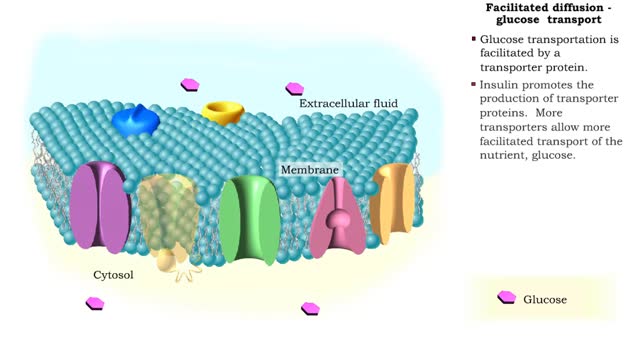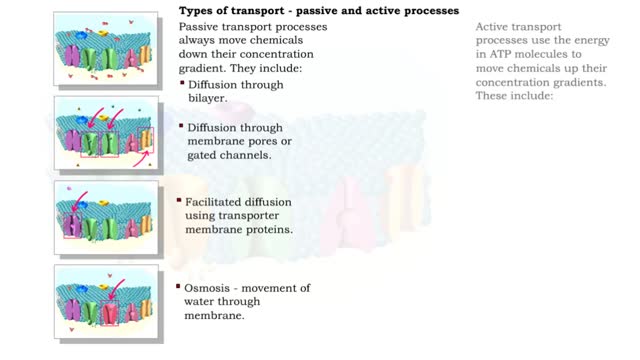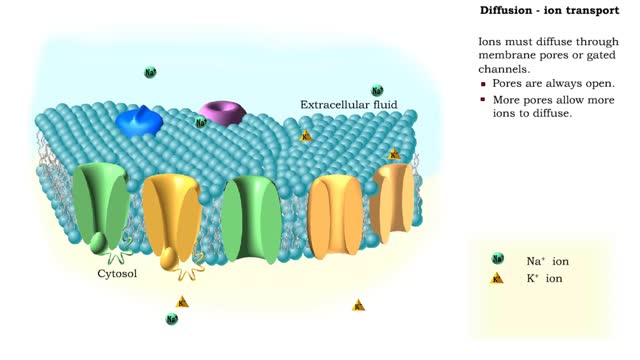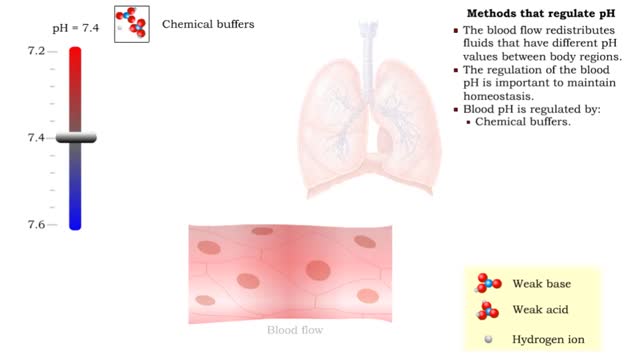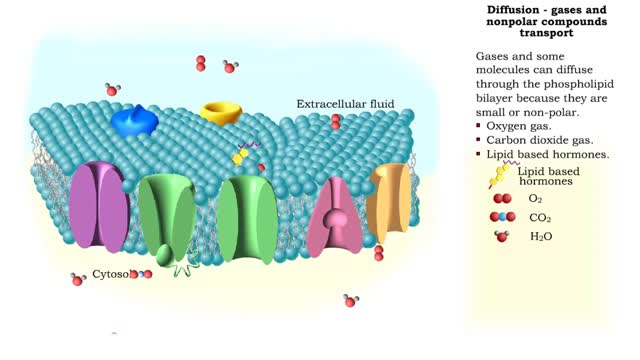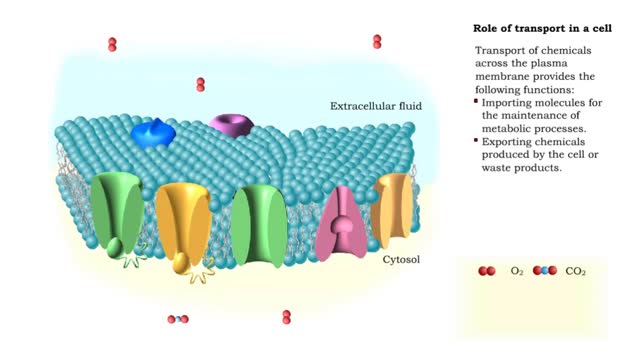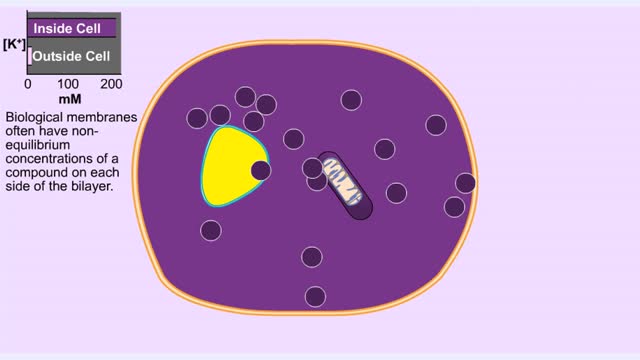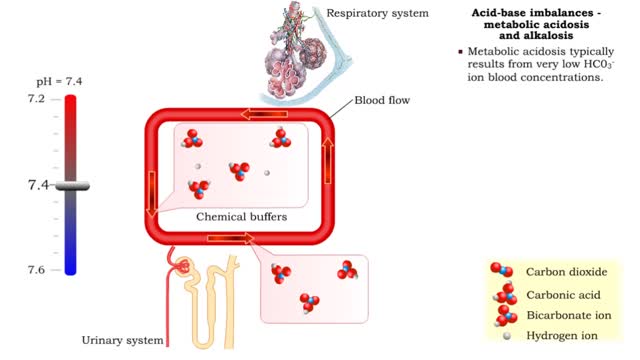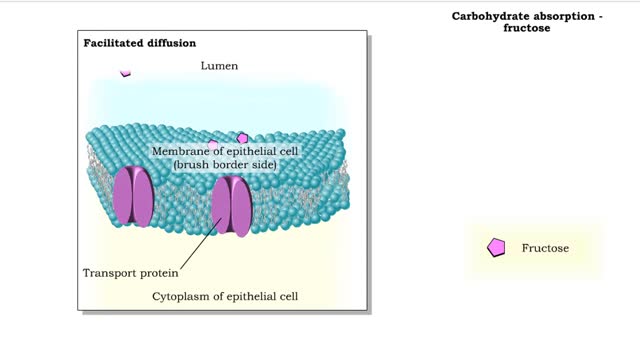Search Results
Results for: 'Facilitated diffusion'
Facilitated Diffusion - Glucose transport
By: HWC, Views: 6889
Transmembrane proteins help solutes that are too polar or too highly charged move through the lipid bilayer The processes involved are: Channel mediated facilitated diffusion Carrier mediated facilitated diffusion In facilitated diffusion, molecules only move with the aid of a protein i...
Type of Transport - Active and Passive Processes
By: HWC, Views: 6866
Active transport moves materials from lower to a higher concentration, while passive transport moves materials from higher to lower concentration. Active transport requires energy to proceed, while passive transport does not require the input of extra energy to occur. Transport processes that ...
Simple Diffusion - Ion transport
By: HWC, Views: 6709
In the process of diffusion, a substance tends to move from an area of high concentration to an area of low concentration until its concentration becomes equal throughout a space. Ions must diffuse through membrane pores or gated channels. Pores are always open. More pores allow more ions...
By: HWC, Views: 6812
• The blood flow redistributes fluids that have different pH values between body regions. • The regulation of the blood pH is important to maintain homeostasis. • Blood pH is regulated by: • Chemical buffers. • The respiratory system. • The urinary system. • All thes...
Simple Diffusion - gases and nonpolar compounds transport
By: HWC, Views: 6975
Gases and some molecules can diffuse through the phospholipid bilayer because they are small or non-polar. Oxygen gas. Carbon dioxide gas. Lipid based hormones. Plasma membranes are selectively permeable: The lipid bilayer is always permeable to small, nonpolar, uncharged molecules ...
By: HWC, Views: 6795
Transport of chemicals across the plasma membrane provides the following functions: Importing molecules for the maintenance of metabolic processes. Exporting chemicals produced by the cell or waste products. Communicating with other cells, allowing for the generation and conduction of a...
Membrane Protein and Facilitated Transport (Passive Vs Active)
By: HWC, Views: 6249
Membrane proteins are common proteins that are part of, or interact with, biological membranes. Membrane proteins fall into several broad categories depending on their location. Integral membrane proteins span the membrane, with hydrophobic amino acids interacting with the lipid bilayer and hy...
Acid-base imbalances - metabolic acidosis and alkalosis
By: HWC, Views: 6691
• Metabolic acidosis typically results from very low HCO3- ion blood concentrations. • Metabolic alkalosis typically results from very high HCO3- ion blood concentrations.
Carbohydrate digestion (brush border enzymes, end products) & Carb absorption (fructose, galactose)
By: HWC, Views: 6676
• Carbohydrate digestion concludes in microvilli of the small intestine, in brush border epithelial cells. Carbohydrate digestion -brush border enzymes • Four brush-border enzymes are involved: • Alpha-dextrinase breaks down alpha-dextrin chains by removing glucose units. • Sucras...
Advertisement



